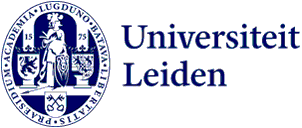
‘A country’s immigration narrative really influences the people arriving there’
Immigration and naturalisation policies are an important theme in the upcoming Dutch elections. The Netherlands should be mindful of its immigration narrative, says PhD candidate Hannah Bliersbach, as this greatly influences the relationship between ‘new’ citizens and their new home country.
From campus to cabinet
The Netherlands will vote for a new government on 22 November. According to the polls, the key issues in these elections are healthcare, housing, livelihood security, immigration and asylum, the climate and sustainability. Which aspects should a new government bear in mind? Our researchers reflect on this in a series of articles.
Hannah Bliersbach is a PhD candidate affiliated to the Leiden interdisciplinary research programme Social Citizenship and Migration. Her research focuses on what it means to be a citizen of a country. For example, how do people feel about becoming part of a nation or having voting rights? To answer these questions, Bliersbach looks at immigrants’ experiences - people who are actively aware of their citizenship and what it took to acquire it. Specifically, she researches immigration processes such as naturalisation, the blending of immigration and criminal law (‘crimmigration’), and how all these systems affect immigrants. ‘If you’re an immigrant, you constantly have to prove yourself, not just that you can participate in the economy but also that you’re not a threat to the system.’ As an interdisciplinary scholar, she views these processes from both a legal and public administration perspective.

You take the naturalisation processes in Germany and Canada as case studies. Why did you choose those two countries?
‘With Germany, I wanted to understand my home country better, being interested in what people there thought about becoming German. People have been moving to Germany for centuries but it has had a hard time seeing itself as an immigration country. The current government's coalition agreement is the first one to identify as such. Germans have a strong perspective on immigration for humanitarian reasons due to their history and the influx of people fleeing from places of war and crisis.
Canada, on the other hand, has developed a brand as a nation defined by multiculturalism with a strong pro-immigration stance, mainly for economic reasons. Education, qualifications and health checks are an important part of the immigration process there.
So I chose these two countries because of these different narratives about themselves when it comes to migration. But also because accessibility to the two territories is so different. Germany is in the middle of Europe, with the Schengen open border system. Canada, in contrast, is this gigantic top of a landmass, basically of a continent, where access is restricted: you either come through the US, which is also difficult to access, or you fly in or arrive by ship. These points of entry are much easier to control.’
Could you describe the naturalisation processes in both Germany and Canada?
‘In Germany, it’s very much passed on to your municipality. You go to your local city hall and talk to a caseworker there. Implementation hinges on this inter-human relationship. But the process can also be long and complicated, with overworked caseworkers working through a large backlog.
‘In Canada, everything is centralised. There are a couple of regional offices, but basically every paper application for permanent residency or naturalisation gets sent to the same warehouse in Nova Scotia. The applications are checked there for completion and are then sent back to the regional offices for further processing. People describe the IRCC, the relevant organisation, as a black box because you don’t meet anyone from there or know anyone’s name. E-mails are signed with codes instead.’
How do these different processes affect the way people view their citizenship once they’ve acquired it?
‘In Canada, it’s a very human-capital, economy-centric system. For a lot of people, it really was a transaction. They do not necessarily feel a profound connection to Canada. In Germany, people who have acquired citizenship still struggle with being accepted as German citizens. In general, I think they have very mixed feelings. On the one hand, there is a sense of achievement and gratefulness that this new country is giving them the chance of a new life. On the other hand, some people say: “Why should I be grateful when it’s taken so much time and effort? I’ve earned this.” At the same time, they feel like they have to keep performing, never feeling fully secure that their status won’t be revoked or that they will be fully integrated into society.’
Are there elements from your findings that we can adapt to the Dutch situation?
‘The Netherlands is dealing with an ageing population generally and certainly has open jobs that especially highly skilled migrants could fill. The government would be wise to be aware of its current narrative, which is as I gather, broadly speaking: “No or fewer immigrants please.” The narrative people hear upon arriving in a country is what they take with them, how they feel in that place. If we’re saying, for instance, that we’re only going to use migration for economic purposes, as in Canada, then we shouldn’t be surprised if people see naturalisation as a transactional interaction and don’t have this deep connection to Dutch values.’
Next week, a new part of this series will appear online.
The main goal of the Leiden Social Citizenship and Migration interdisciplinary research programme is to provide objective information based on rigorous analysis that will lead to a better understanding of the relationship between migration, citizenship, governance and public policy. Migration raises questions in relation to important topics such as integration and social participation, the need for (re-)defining individuals’ identity, the relevance of civic responsibilities, the understanding of racism and prejudice, and the sustainability of social welfare regimes among others. This research programme tackles these and other related questions by bringing together scholars from history, economics, law, political science and anthropology.
